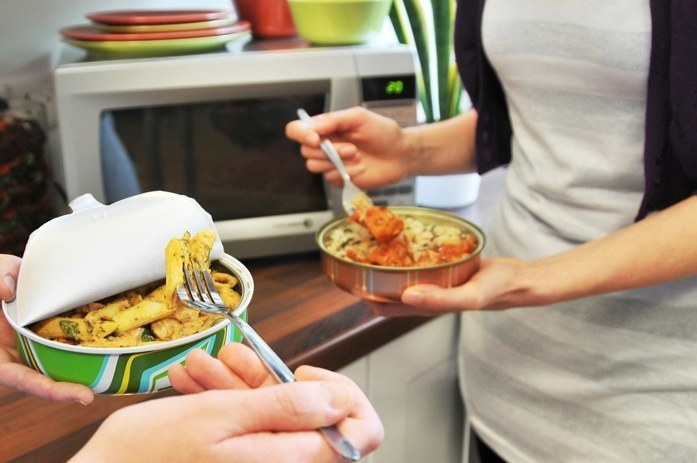Food and nutrition experts share their canned food choices to advise us on healthy eating. Fresh food is loved, but canned food is also to be commended. Canning has been used to preserve food for centuries, keeping it safe and nutritious until the can is opened, which not only reduces food waste, but also means you have a lot of fast food in your pantry. food reserve. I asked the nation’s top food and nutrition experts about their favorite canned foods, but before taking a peek at their pantries, here are some tips for choosing nutritious canned foods.
Choosing products that are low in sugar and sodium. You might think it’s ideal to choose foods with no added sugar or salt, but it’s okay if you add a little sugar or salt to your canned soup.
Looking for BPA-free canned inner packaging. While soda cans are made of steel, their inner walls are often made from substances that contain the industrial chemical BPA. Although the FDA considers the substance to be currently safe, other health groups have also issued warnings. Even private labels use BPA-free can linings, so it’s not hard to avoid this potentially harmful substance.
Avoiding canned foods with artificial preservatives and ingredients is not difficult to do, as canning is a food preservation technique in itself.
Canned beans
When you open a can of beans, you can add protein and fiber to salads, pasta, soups, and even sweets. New York-based nutritionist Tamara Duker Freuman, author of Bloating Is a Warning Sign for the Body, says canned beans are undoubtedly her favorite. “On my show, canned beans are the base for three of the easiest, fastest, and cheapest weekend home meals. Canned black beans with some cumin and oregano are the base for a Mexican bowl, and I use brown rice or quinoa , avocado, and more; canned cannerini beans are my star ingredient in a turkey, onion, and garlic-infused white chili dish; I pair canned chickpeas with a can of Indian-style stew or A pre-made spice mix for a quick South Asian curry and garnish with rice, plain yogurt and cilantro.”
Brooklyn, New York-based nutrition and health expert and author of Eating in Color, Frances Largeman Roth, is also a fan of canned beans. She always has a few cans of black beans in her kitchen. “I use black beans for everything from weekend quesadillas to my homemade black bean chili. My older daughter doesn’t eat much meat, but she loves black beans, so I like to add them to her flexitarian In the diet. Black beans, like other legumes, are an excellent source of fiber and plant protein, containing 7 grams per 1/2 cup. One serving of black beans contains 15% of the human body’s required daily intake of iron, which makes black beans An especially good ingredient for women and teens,” she explained.
Keri Gans (RDN), New York State nutritionist and author of The Small Change Diet, makes home-cooked meals easy from canned beans. “One of my favorite canned foods is beans, especially black and kidney beans, because I never have to spend a lot of time cooking them.” She sautéed the bowtie pasta in olive oil, adding garlic, spinach, cannellini beans And Parmesan for a fiber- and protein-packed meal that’s easy to make and easy to pack!
Canned chickpeas are not only a delicacy, they’re also a great snack, says Bonnie Taub Dix, author of Read It Before You Eat It — Taking You from Label to Table. , RDN) say after rinsing and draining, just season and bake. Tabo Dix points out that, like other legumes, they are suitable for making many different foods. Beans provide high-quality, slow-burning carbohydrates, protein, and many of the vitamins, minerals, and antioxidants found in similar vegetables.
Post time: Dec-01-2022






